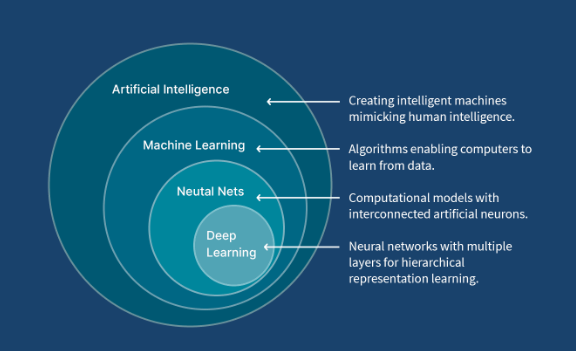Deep Learning AI: Unlocking the Future of Technology
In recent years, deep learning AI has emerged as a key driver of technological innovation, impacting various fields from healthcare to entertainment. This advanced subset of artificial intelligence mimics the way the human brain processes information, leading to remarkable advancements in data analysis, computer vision, and natural language processing. Understanding deep learning is essential for anyone looking to stay ahead in today’s fast-paced digital landscape.
The Basics of Deep Learning AI
Deep learning is a form of machine learning that utilizes neural networks with many layers, hence the term “deep.” These networks are designed to learn complex patterns from vast amounts of data. Unlike traditional machine learning algorithms, deep learning can automatically extract features from raw data, dramatically reducing the need for manual feature extraction. For example, in image recognition tasks, deep learning models can identify objects within images more accurately and quickly than previous methods. This capability is transforming industries by enabling more effective automation and decision-making processes.
Applications in Everyday Life
The applications of deep learning AI are all around us, often in ways we may not even realize. From virtual assistants like Siri and Alexa to sophisticated recommendation systems on platforms like Netflix and Spotify, deep learning is enhancing user experiences. Additionally, it plays a crucial role in healthcare, where it is used to analyze medical images and assist in diagnostics. This technology is also revolutionizing fields like finance, where it can predict stock market trends through pattern recognition. As it continues to evolve, deep learning is set to change the way we interact with technology daily.
Challenges and the Future of Deep Learning
While the promise of deep learning is immense, it does face challenges that need addressing. One significant issue is the demand for vast amounts of high-quality data to train these models effectively. Moreover, deep learning algorithms can be complex and difficult to interpret, leading to concerns about transparency and accountability. Despite these challenges, research and development are progressing rapidly, paving the way for more robust and user-friendly applications. As computational power continues to grow and techniques improve, the future of deep learning looks bright, with the potential to unlock even more groundbreaking innovations.
In conclusion, deep learning AI is shaping the future of technology in profound ways. Its ability to analyze and learn from vast amounts of data is transforming industries and enhancing everyday life. If you’re interested in diving deeper into this fascinating subject, consider taking an online course, reading up on the latest research, or exploring projects that harness deep learning. The future is here, and it’s worth being a part of!

